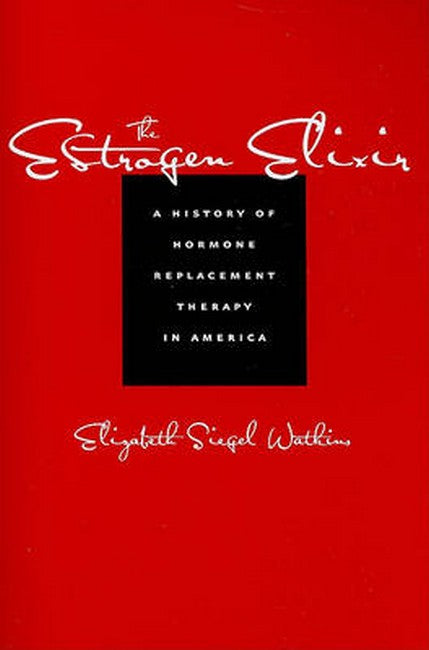In the first complete history of hormone replacement therapy (HRT), Elizabeth Siegel Watkins illuminates the complex and changing relationship between the medical treatment of menopause and cultural conceptions of aging. Describing the development, spread, and shifting role of HRT in America from the early twentieth century to the present, Watkins explores how the interplay between science and society shaped the dissemination and reception of HRT and how the medicalization -- and subsequent efforts toward the demedicalization -- of menopause and aging affected the role of estrogen as a medical therapy. Telling the story from multiple perspectives -- physicians, pharmaceutical manufacturers, government regulators, feminist health activists, and the media, as well as women as patients and consumers -- she reveals the striking parallels between estrogen's history as a medical therapy and broad shifts in the role of medicine in an aging society.Today, information about HRT is almost always accompanied by a laundry list of health risks. While physicians and pharmaceutical companies have striven to develop the safest possible treatment for the symptoms of menopause and aging, many specialists question whether HRT should be prescribed at all. Drawing from a wide range of scholarly research, archival records, and interviews, The Estrogen Elixir provides valuable historical context for one of the most pressing debates in contemporary medicine.Praise for Watkins' On the Pill:''An exemplary study of how the nation which first had access to oral contraceptives first came to terms with their advantages, and their drawbacks.'' -- Times Literary Supplement''Intelligent and wellstructured... An admirable exercise in social history.'' -- Nature''A particularly fascinating issue, trim and focused, sophisticated and helpful, fresh and very interesting.'' -- American Historical Review''In every carefully organized, lucidly written chapter Watkins provides surprising corrections to conventional thinking about the new birth control method.'' -- Journal of American History''Anyone concerned with the debate over scientific advance and medical authority will find this a highly stimulating study.'' -- Journal of American Studies''This is an excellent book, and one I would heartily recommend to anyone with aninterest in the history of the health sciences or the history of the women'smovement.'' -- Doody's Review Service''Much has been written about postmenopausal estrogen therapy... This wonderful book tells the story.'' -- Elizabeth BarrettConnor, M.D., New England Journal of Medicine''A good read.'' -- Wulf H. Utian, Journal of Clinical Investigation''The Estrogen Elixir sets a high standard for future histories of pharmaceuticals and of aging.'' -- Jimmy Elaine Wilkinson Meyer, Journal of American History''This book takes an indepth, socially analytical look at the evolution of menopausal hormone therapy in the United States, with a focus on estrogen since its discovery... Watkins tells the story accurately and objectively. No accusations and no praise, just the facts.'' -- K. Eddie Gabry, MD, MS, JAMA''Watkins provides a fascinating, multifaceted study of HRT, leaving no voices out of the debate.'' -- Wendy Kline, History and Philosophy of the Life Sciences''Watkins presents a detailed account of the historical record of the subject.'' -- Carlos Sonnenschein, Philosophy, Ethics, and Humanities in Medicine''More than a medical history of HRT. It is also a history of the medicalization of women's health and changing cultural attitudes toward aging, femininity, female identity, women's health activism, and the science of drug evaluations.'' -- Dominique Tobbel, Chemical Heritage Magazine''A fascinating aspect of Watkins's story is how drugs can be rebranded in the face of falling sales.'' -- Bruno J. Strasser, Historical Studies in the Natural Sciences''A significant work on the social history of American medicine and a major contribution to the growing literature on hormonal therapeutics and research.'' -- Chandak Sengoopta, Isis

